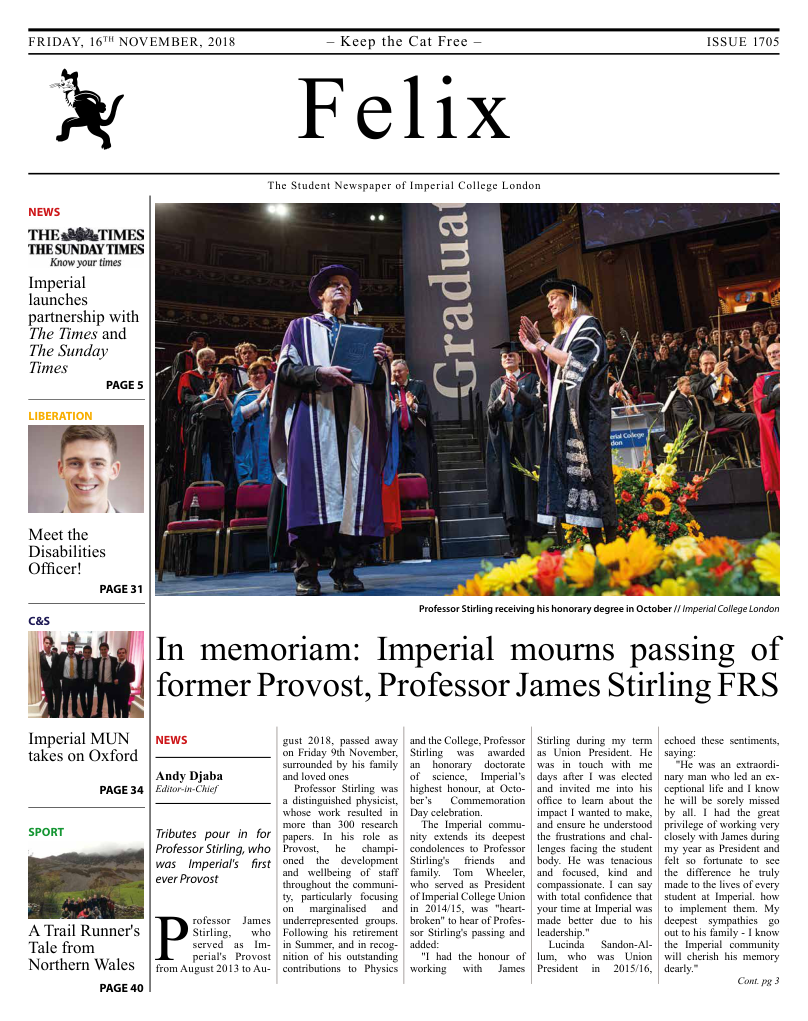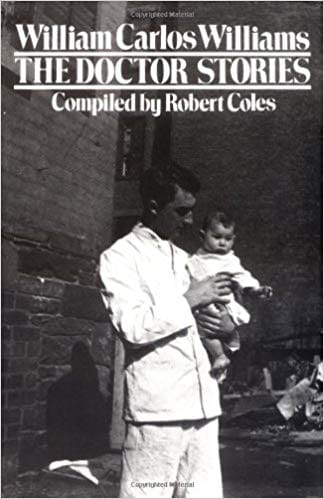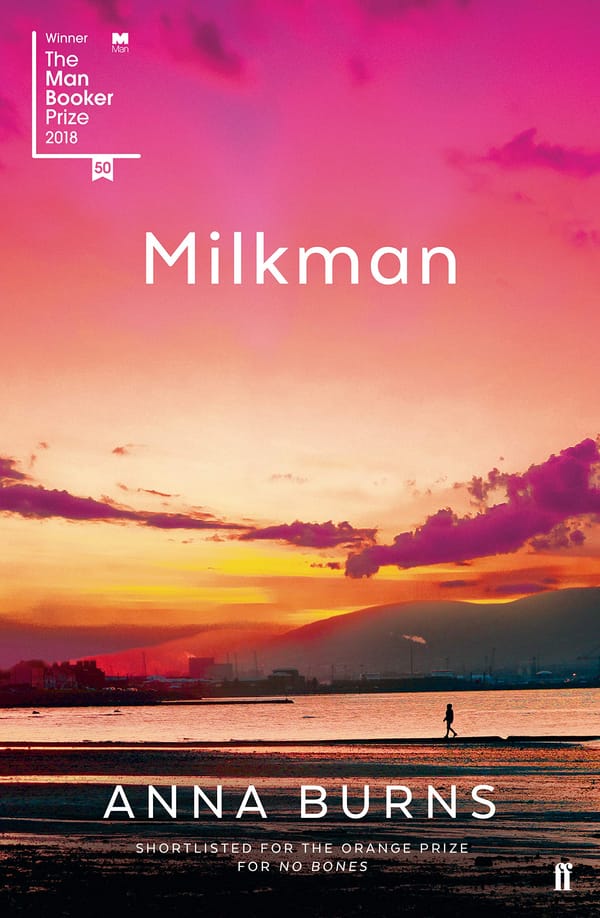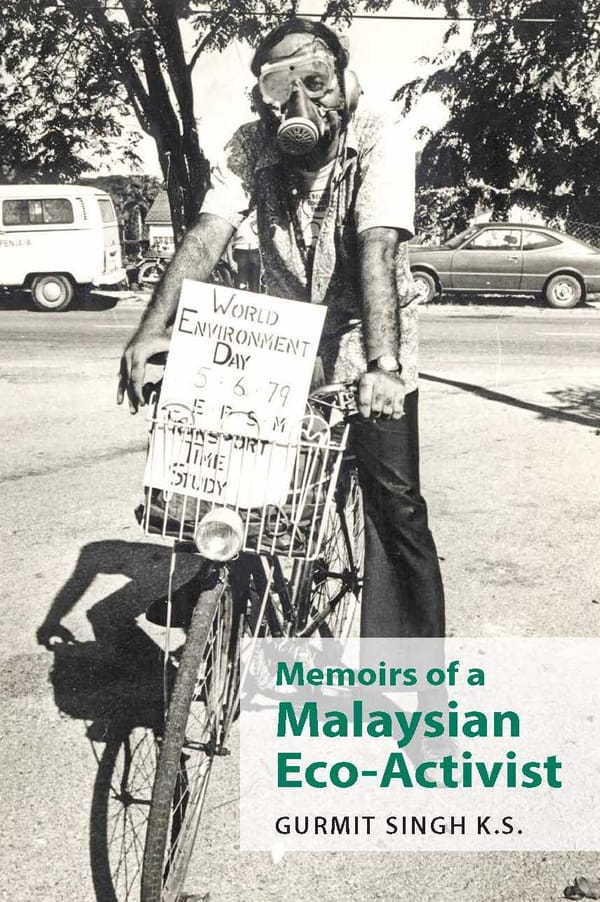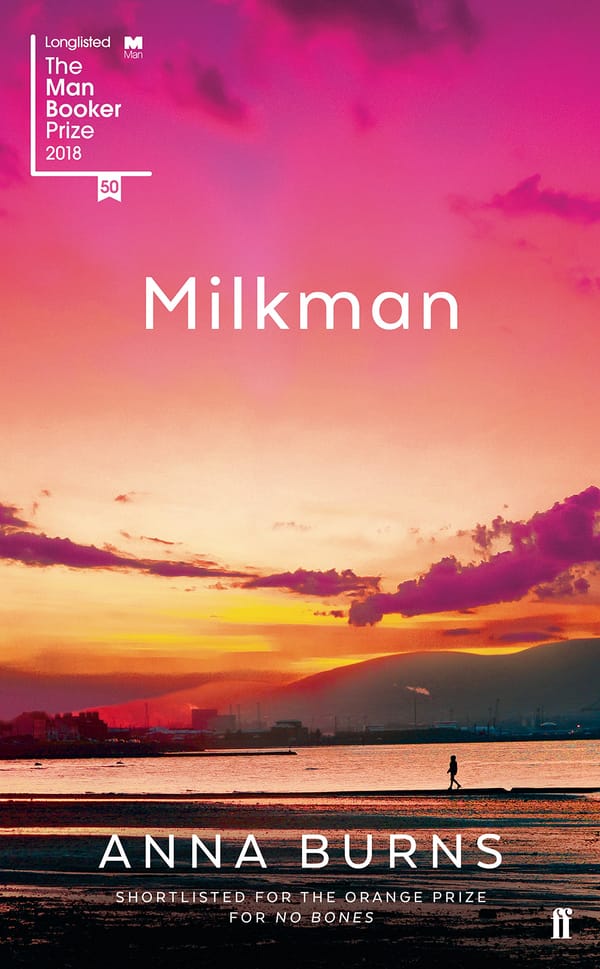TS Eliot Prize 2018: an ‘intensely political’ shortlist
This year’s shortlist for one of the most prestigious poetry prizes includes both established poets and a record five debut collections.

The TS Eliot Prize in poetry is one of the most prestigious poetry prizes for the English language. Last year, to celebrate the 25th year of the prize, the winner’s prize money was increased to £25,000 - making it the most valuable prize in British poetry. It is no surprise then that the prize is closely watched by the rest of the literary world, with the winner announced on 14th January 2019.
This year’s shortlist is ‘intensely political’, says Clare Pollard, one of the three judges of this year’s prize. Highlighting the importance of words and poetry in today’s political discourse, Pollard said that an engagement with words is all the more crucial in today’s culture of fake news. Pollard, along with fellow poets and judges Sinéad Morrissey (who chairs the judges) and Daljit Nagra, read a record 176 collections of poetry before settling on the final ten.
Previous winners of the prize have included big names like Ted Hughes, Alice Oswald and Carol Ann Duffy. This year, the shortlist includes established poets like Sean O’Brien, a previous winner of the prize, as well as five debut collections, making up an exciting mix of contemporary voices. Here are the ten shortlisted collections:
Insistence by Ailbhe Darcy
This is the second collection from the Irish poet, and focuses on themes of family, love and home. A new child should mean new hope, but what if that is no longer true? What happens when the private word is threatened by a public one? Darcy’s collection is set in the American Rust Belt, in a time of climate change and disenchantment. Insistence examines the parent’s responsibility to her child, the poet’s responsibility to the reader and the individual’s responsibility in the face of a global crisis. This collection is a response to troubled times.
American Sonnets for My Past and Future Assassins by Terrance Hayes
This collection, Hayes’ sixth, was written during the first 200 days of Donald Trump’s presidency - one poem every day. It is a sequence of sonnets that tackles the fast-moving news cycle of American politics, an immediate response to the equally immediate and changeable media politics of Trump’s America. Tracing the fault lines of race, gender and political oppression, this collection of seventy poems touch on everything thrown around in American media and politics, leaving no stone unturned. Just as the traditional sonnet attempts to express an inexpressible love, Hayes’ poems attempt to make sense of one’s ties to a nation, in disarmingly intimate but masterful language.
Us by Zaffar Kunial
Kunial was born in Birmingham to an English mother and a Kashmiri father, and now lives in Hebden Bridge. The differences between his parents and his own upbringing make up part of the ‘us’ that he examines in his debut collection. What does it mean to be a human being seeking belonging on this earth? Kunial draws on different lands and peoples, from Kashmir, where his father was born, to the Midlands, where his mother grew up, and even to the Orkneys of her ancestors. He is the acknowledged poster boy of the Faber New Poets scheme, and this first collection heralds the arrival of a striking new voice.
Feel Free by Nick Laird
Laird’s fourth collection shares a title with his wife, Zadie Smith’s new essay collection. While Smith examines freedom in her observations on reality, Laird does it through his masterful use of poetic form, expressing feeling by freeing up words. Eleanor Stern writes in The London Magazine: ‘few contemporary poets can make old poetic forms feel natural and lyrical the way Laird can’. And indeed, his poems range from free verse to villanelles, tackling issues from Grenfell to the refugee crisis.
The Distal Point by Fiona Moore
Moore’s debut collection opens with a series of elegies for her late partner, who passed away eleven years ago. Moore, who used to work in the Foreign Office, said she left to write poetry because she realised that was what she would regret not doing when she was 60. Her shortlist seems to be validation of this decision. The poems here confront personal loss and change, to more far-reaching themes of European history and the politics of power.
Europa by Sean O’Brien
O’Brien’s earlier collection The Drowned Book won both the TS Eliot and Forward Prizes in 2015. Europa is his ninth collection, and a timely one. The poems in this collection examine our present crises in the context of an imaginary past, suggesting that our futures will be determined by what we make of our European identity, and what we choose to remember and forget of the continent’s shared history.
Shrines of Upper Austria by Phoebe Power
Power was a winner of the Foyle Young Poets in 2009, and Shrines of Upper Austria, her debut collection, won the 2018 Forward Prize for Best First Collection. It is a collage of stories and histories, written from a variety of perspectives, ranging from that of an Austrian woman who married a British soldier, to the voices of schoolchildren and immigrants, cutting across lands and languages.
Soho by Richard Scott
Scott’s first collection takes an intimate, nuanced and uncensored look at gay identity and culture. In contrast to the corporate, family-friendly, shopping-mall depictions of gay freedom, Soho confronts the multiple facets of gay identity - including the shame, intimacy, desire and violence inherent to the gay experience.
Wade in the Water by Tracy K Smith
Smith is not a new name in poetry - this is her fourth collection, and Life on Mars won the Pulitzer Prize. In 2017, she was named Poet Laureate of the US. This collection takes its title from a spiritual, a type of song sung on the underground railroad that carried slaves to safety in the 19th century, and its poems are a patchwork of the voices and stories of slaves and their owners.
Three Poems by Hannah Sullivan
Yet another debut collection, Three Poems is an intimate collection, touching on sex, giving birth, death, but also beauty and nature. Her words tread lightly, and shed new light onto old subjects.


